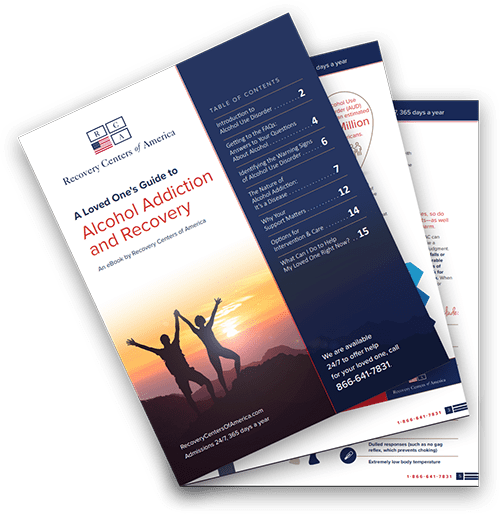What can I do to help my loved one right now?
Why helping an alcoholic family member matters
While your family member is suffering through alcohol addiction, you are likely suffering as well. You may feel helpless and frustrated as you watch them continue to harm themselves. Most of all, you probably feel the weight of the responsibility that comes with caring for someone struggling with addiction to alcohol.
You, your family member, and everyone else who is affected by their disorder has probably lost a sense of normalcy, peace, and trust. If you’re longing for the day when you can again experience restored family relationships and a peaceful home environment, it is important to not lose hope. Instead, focus on how much your support matters, take action to get the person the help they need, and stay involved throughout their treatment, assisting them as well as engaging in your own recovery.
The right kind of support is important to consider when trying to be there for your loved one. While approaches to helping loved ones get care may differ, there is one approach that is never helpful: ignoring the problem or fundamentally assisting the patient to continue in the addiction.
Addiction is a disease that affects the body and mind and although it may feel right (or even feel supportive) to provide your loved one with extra money to pay bills or to cover for their work or social failures (like calling in sick for them), those are not solutions that will treat the disease or lead to lasting change. In fact, those types of support will allow your loved one to prolong alcohol dependence. Protecting and providing for your loved one is about getting them help, not about covering up the problem.
Insist your family member gets the treatment they need
When someone suffers from the disease of alcohol or drug addiction, they have lost their ability to control their alcohol or drug use. To begin the road to recovery, they will need the loving guidance and firm support of family and friends who care enough about them to insist they receive the treatment they need. Your support is crucial, first and foremost, because it may be the necessary, initial catalyst for change. For many people struggling with alcohol use disorder, the first step toward care is one they are unable or unwilling to make on their own.
Keep in mind that substance use disorders are not always properly or quickly diagnosed by medical professionals who do not specialize in substance use disorders. Most doctors do not have sufficient training in this area to sufficiently treat the disease – or even, at times, to recognize it. You are your loved one’s best advocate. Never settle for unanswered questions or attempts to minimize the situation. If you believe your loved one is struggling with alcohol problems, your relentless support may be the only thing that will get them the help they really need.
Don’t fall for the myth of hitting “rock bottom”
The phrase “rock bottom,” in the addiction treatment field, is often used to describe a person’s lowest point, the point at which they finally realized they needed to get treatment. This might mean after an accident or overdose, or once they have lost their job. Although many think this is the best place for recovery to begin, the reality is that this can be a very dangerous way of thinking.
The fact is that we would treat no other chronic disease this way. Imagine waiting for a diabetic or cancer patient to hit “rock bottom.” You would seek help as soon as you noticed an issue. Even if your loved one doesn’t feel ready for treatment, research shows that people who are coerced into treatment have an equal chance of recovery as those who make the choice to get that help. And who is to say you would even recognize “rock bottom” when your loved one is there? It can look vastly different for each individual’s experience. Don’t take the risk; seek help as soon as you suspect a problem.
Stay involved throughout the process
Your support is essential to the entire treatment and recovery process as well. Families can make a tremendous difference. In fact, studies show that patients whose families participate in their treatment stay longer in treatment and have lower relapse rates than those without family involvement. Collaboration with family and friends is a vital piece of the recovery process. A quality treatment center should be able to provide resources, but no one can replace you as the essential support system that your loved one needs during and after their treatment.
Your loved one’s recovery will be a journey, but that journey may not begin until you help them take the first step. Start a conversation with one of our Care Advocates. They can help you understand substance abuse, learn more about treatment options, and help your loved one take the first steps on the road to recovery.
Does your loved one need addiction treatment?
We’re here 24/7.
What are your family member’s options?
- Professional intervention. An intervention isn’t about confrontation – it’s about finding a full family solution. It’s heart-breaking to watch addiction consume a loved one, and there are a lot of factors that go into the decision to pursue treatment. A professional interventionist can work with you pull together a support system of people who can deliver a clear-cut plan to your loved one.
- detoxification. detoxification is the process of medically stabilizing patients while drugs and alcohol leave their system. An initial medical evaluation will determine whether this is a step that your loved one will need. If so, a medically safe withdrawal will be facilitated for them while helping to ease the discomfort often associated with withdrawal symptoms. Detox alone is never considered a full course of treatment, but it may be a necessary first step before additional care can be delivered.
- Residential or inpatient services. Many patients require intensive, structured support in the initial stages of recovery, such as inpatient services. During this time, your loved one will be provided with a variety of treatments including individual and group therapies, seminars, workshops, and various recovery meetings. In addition, you and your loved one should be able to participate in family programming to ensure that you can stay connected, involved, and educated throughout the whole process.
- Day Treatment or Partial Hospitalization: Partial hospitalization is an option is for patients who do not require a residential stay to successfully begin recovery but still require high levels of support and treatment. Your loved one can live at home while receiving 25 hours of on-campus treatment per week.
- Intensive outpatient Programs: Intensive outpatient programs allow patients who have established initial recovery to go back to their everyday lives while continuing to receive extended ongoing support and treatment by attending individual and group sessions, typically three days a week for approximately 3-5 hours a day.
- Traditional outpatient Programs: Traditional outpatient programs allow patients to continue to get professional support while engaging in every aspect of their everyday lives. Typically, this entails one individual session and one group session per week. Patients often continue in traditional outpatient therapy for their full first year of recovery.
What can I do to help my loved one right now?
- 24/7 Call Recovery Centers of America any time for a free assessment or to learn more about our treatment options.
- We are available 24/7 to offer help for your loved one, so call 877-520-9659 today.
- Remember that alcohol use disorders are treatable and you have the power to take action. There is hope for your loved one and with proper assessment and treatment, recovery is within reach.


